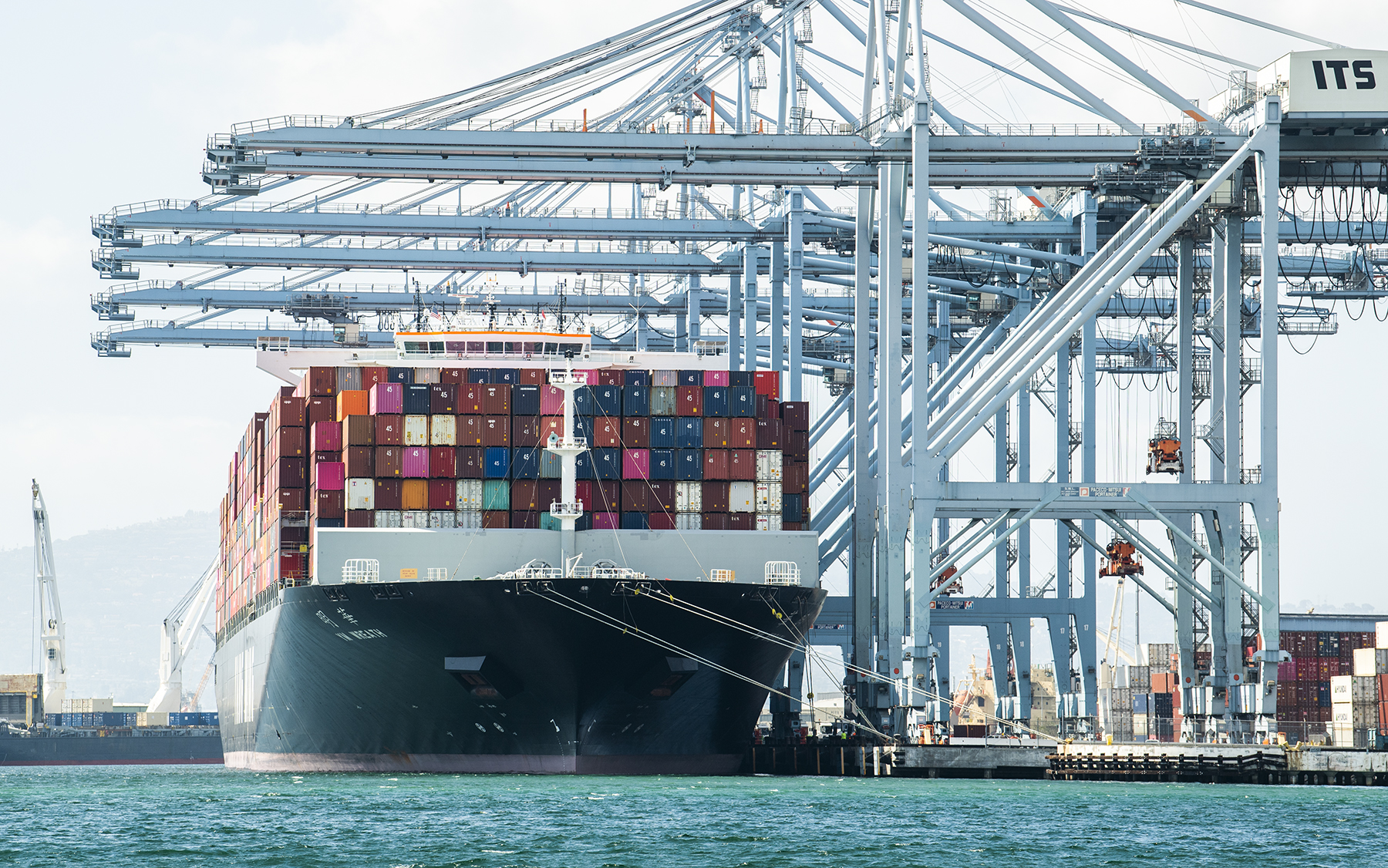
The ports of Los Angeles and Shanghai, in partnership with the C40 Cities and other stakeholders, announced a new partnership to establish the first green shipping corridor in the world.
The partnership will create a first-of-its-kind corridor between the U.S. and China—one of the busiest container routes in the world. The group is slated to unveil its “Green Shipping Corridor Implementation Plan” by the end of the year, including deliverables, milestones and roles.
The main goal of the partnership is to reduce greenhouse gas emissions for goods movement between the largest ports in the U.S. and China.
“International collaboration is essential to decarbonize global supply chains,” Port of LA Executive Director Gene Seroka said in a statement.
Key goals of the partnership include:
- Phasing in low, ultra-low and zero carbon fueled ships throughout the 2020s, followed by the world’s first zero-carbon trans-Pacific container ships to be introduced by 2030.
- Developing best management practices to reduce emissions and improve efficiency.
- Reducing supply chain emissions from port operations and improving air quality in adjacent communities.
“We applaud this effort,” Port of Long Beach Executive Director Mario Cordero told the Business Journal. “We’ve made tremendous progress cleaning up our operations, and as our partners at the Port of Los Angeles know, a lot of it is about setting an example for the industry.”
While the Long Beach port is not officially a partner in the new initiative, Cordero noted that the green corridor is complementary to the San Pedro Bay ports’ joint effort to reduce emissions. In 2007, the ports adopted their Clean Air Action Plan, which outlined steps toward reducing emissions to 80% of 1990 levels by 2050.
Additionally, the partnership builds on large-scale environmental efforts such as the World Ports Climate Action Program, an international commitment to develop projects to meet the goals of the Paris Agreement, Cordero said.
Shippers Maersk, CMA CGM and COSCO also are partners in the new initiative, along with the Aspen Institute’s Shipping Decarbonization Initiative, facilitators of Cargo Owners for zero Emission Vessels and the Maritime Technology Cooperation Centre in Asia.
“Accelerating efforts to decarbonize the shipping sector is urgent if we are to limit global heating to 1.5 degrees,” Mark Watts, executive director of C40 Cities, said in a statement. “By convening international coalitions of the willing and creating a scalable and replicable model for other cities to follow we hope this ground-breaking green shipping corridor initiative will catalyze action on a global scale.”
